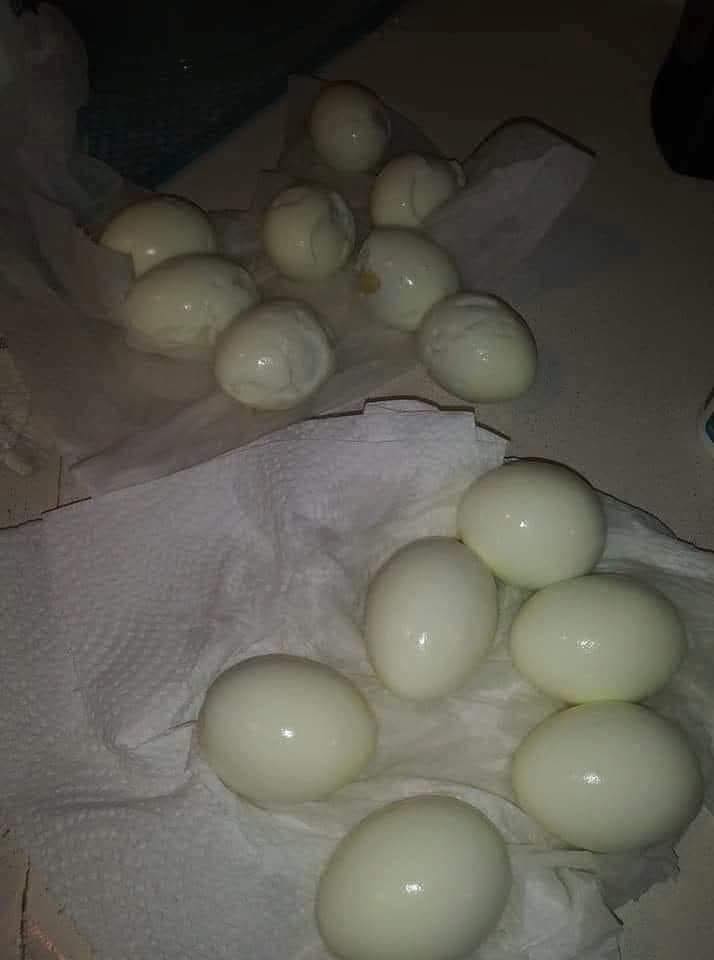Okay, let’s settle this once and for all! The age-old question: does adding salt to the water when boiling eggs *really* make a difference? We’re diving deep into the science (and some kitchen lore) to figure out if this is a helpful hack or just an old wives’ tale. We boiled eggs both ways – with and without salt – so you don’t have to! Prepare for some eggy enlightenment.
The Great Egg Debate: Salt In The Water?

For generations, cooks have sworn by the practice of adding salt to the water when boiling eggs. The supposed benefits range from easier peeling to preventing cracks. But is there any truth to these claims? Let’s crack into the details (pun intended!). Many swear that when the eggs on top were boiled with salt in the water, they just came out better!
Easier Peeling: Fact or Fiction?

This is probably the most cited reason for adding salt. The theory is that the salt water penetrates the shell slightly, making it easier to separate from the egg white. While some anecdotal evidence supports this, the science is a little more nuanced. Ultimately, freshness plays a bigger role. Older eggs, with a larger air pocket, tend to peel easier than very fresh eggs, regardless of salt content. However, salt *can* help to a small extent by slightly increasing the water’s density, potentially reducing protein bonding to the shell.
Preventing Cracks: A Salty Shield?

Another common belief is that salt strengthens the eggshell, preventing it from cracking during boiling. While salt itself doesn’t make the shell physically stronger, it does subtly affect the thermodynamics. Salt can slightly raise the boiling point of water. Although the increase is minimal, some argue that this gentler heating process can reduce the likelihood of rapid expansion and cracking. Also, the thinking goes, if an egg *does* crack, the salt may help the egg white coagulate faster, minimizing leakage.
The Taste Test: Does Salt Affect the Flavor?

While the primary intention of adding salt is not for flavor, some argue it can subtly season the egg white. The reality is that the amount of salt that actually penetrates the shell is minimal. You’re much better off seasoning your eggs after they’re peeled! To season your hard boiled eggs:
* Sprinkle with salt and pepper.
* Add a dash of hot sauce.
* Try Everything Bagel seasoning!
The Verdict: To Salt or Not To Salt?

So, should you add salt to your egg-boiling water? The answer is… it depends! While the benefits might be subtle, there’s no harm in adding a pinch or two. It *might* slightly improve peeling and *may* help prevent cracking, and it certainly won’t hurt the taste. However, don’t rely on salt alone. Freshness, proper cooking techniques (like starting in cold water), and a quick ice bath after cooking are far more important factors for achieving perfectly cooked, easy-to-peel hard-boiled eggs.
Beyond Salt: Pro Tips for Perfect Hard-Boiled Eggs

While the salt debate rages on, let’s focus on tips that *really* make a difference:
* **Start with Cold Water:** Place eggs in a pot and cover with cold water. This helps them cook more evenly.
* **Don’t Overcrowd the Pot:** Give the eggs enough space to move around freely.
* **Control the Heat:** Bring the water to a boil, then immediately reduce to a simmer.
* **Set a Timer:** 10-12 minutes is ideal for hard-boiled eggs.
* **Ice Bath is Key:** Immediately transfer cooked eggs to an ice bath to stop the cooking process and make peeling easier.
* **Consider an Instant Pot:** Instant Pots consistently produce perfectly cooked, easy-to-peel eggs. Learn more here!
Conclusion: Embrace the Egg-speriment!

Ultimately, the “salt or no salt” question is a matter of personal preference. While it’s not a magic bullet, adding salt to the water when boiling eggs can offer subtle benefits. Experiment with both methods and see what works best for you. But remember, focusing on proper cooking techniques and using fresh eggs will have a far greater impact on your hard-boiled egg success! Now go forth and conquer your kitchen with perfectly cooked, easy-to-peel eggs. Share your results with us and let us know what method works best for you!
